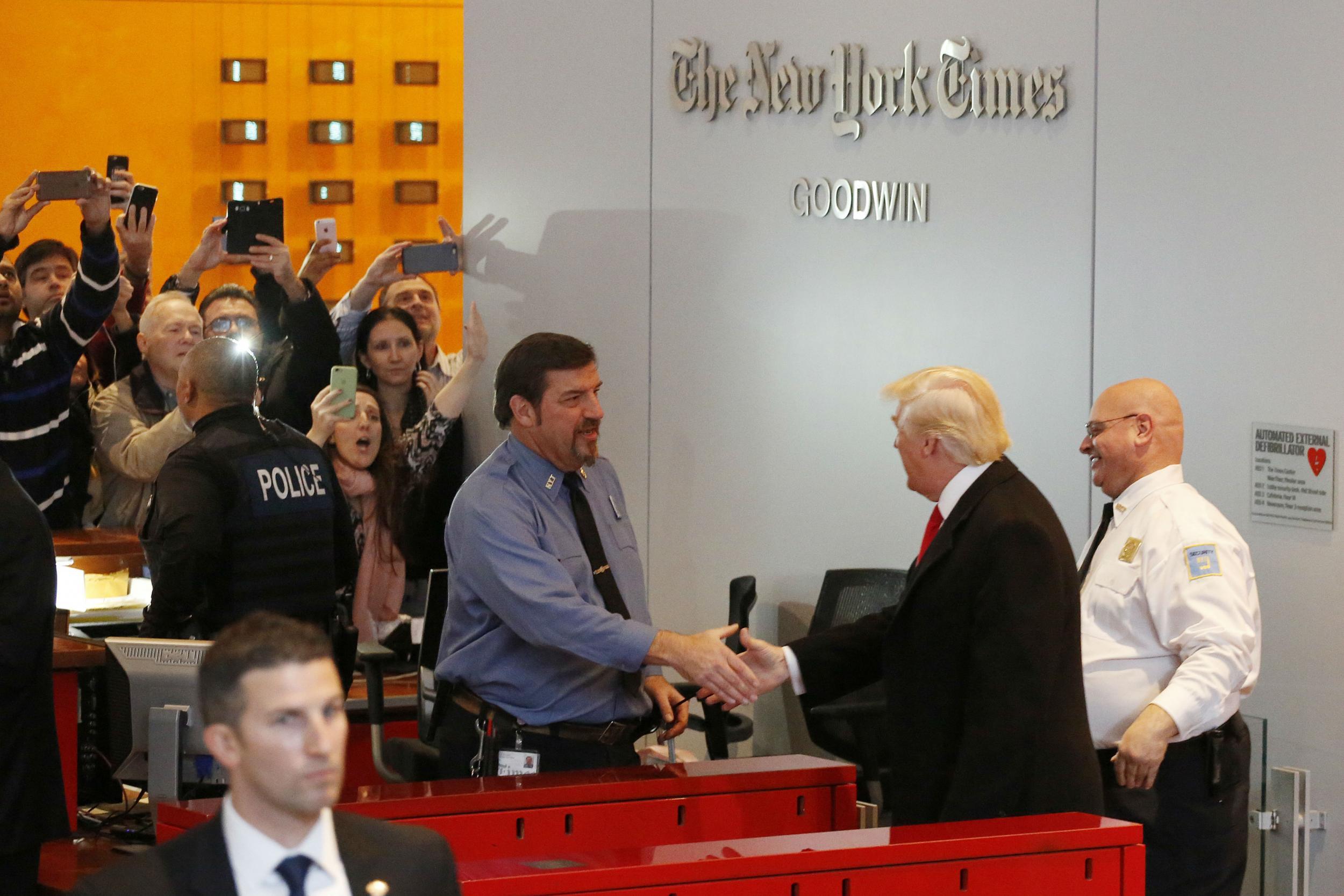Donald Trump's most illuminating quote from sit-down with The New York Times

Your support helps us to tell the story
From reproductive rights to climate change to Big Tech, The Independent is on the ground when the story is developing. Whether it's investigating the financials of Elon Musk's pro-Trump PAC or producing our latest documentary, 'The A Word', which shines a light on the American women fighting for reproductive rights, we know how important it is to parse out the facts from the messaging.
At such a critical moment in US history, we need reporters on the ground. Your donation allows us to keep sending journalists to speak to both sides of the story.
The Independent is trusted by Americans across the entire political spectrum. And unlike many other quality news outlets, we choose not to lock Americans out of our reporting and analysis with paywalls. We believe quality journalism should be available to everyone, paid for by those who can afford it.
Your support makes all the difference.Of all the sound bites to emerge from Donald Trump’s conversation with the New York Times, one proved to be particularly telling.
After a turbulent morning during which Mr Trump abruptly cancelled his meeting with the paper in a series of 6am tweets, the President-elect sat down with publisher Arthur Sulzberger Jr. and a number of reporters from the paper later on Tuesday.
Mr Trump held a strictly off the record meeting with representatives from major networks a day previously, which one source summarised as “a Trump-style dressing down”. This account was disputed by a source speaking to CNN afterwards who said “real progress” was made.
If his first meeting with journalists was a dressing down, this was much more cordial. Mr Trump dominated the conversation by filling the strictly allotted time with lengthy quotes about winning the election and winning "big". After being asked if he had any opening remarks, Mr Trump responded with comments amounting to 15 paragraphs of text reminding those present of how he beat Hillary Clinton. “And I thought we were going to win it. And we won it, we won it, you know, relatively easily, we won it by a number of points. Florida we won by 180,000 — was that the number, 180?”
When asked if he was worried he could wake up in three years time and find himself accused of having governed more in the style of Paul Ryan than Donald Trump, he used the so-called ‘rust belt’ areas of the US knocked by the decline of the industrial sector as an example of his determination to do a good job instead of being concerned with how he is perceived.
In an illuminating response about his motivations, he added: “To me more important is taking care of the people that really have proven to be, to love Donald Trump, as opposed to the political people."
Mr Trump continued: "And frankly if the political people don’t take care of these people, they’re not going to win and you’re going to end up with maybe a total different kind of government than what you’re looking at right now. These people are really angry. They’re smart, they’re workers, and they’re angry. I call them the forgotten men and women."
His comments echoed the prescient warning delivered by documentarian Michael Moore that a Trump victory would be the "biggest f**k you" from the forgotten working classes to the political establishment in human history, a "f**k you" that would feel good for a week and begin to smart soon after.
The interview meandered into questions about his Democratic rival, the environment, his comparisons of Breitbart to The Times, his controversial new chief strategist, Stephen Bannon, his relationship with President Obama - “great chemistry” - and infrastructure, but always returned back to one subject: his victory in the election.
Contradiction was a recurring theme throughout the exchange. Mr Trump flip-flopped on his pledge to appoint a special prosecutor to investigate Ms Clinton - “it’s just not something I feel very strongly about” - and suggested there was “some connectivity” between human activity and climate change after claiming it could be a “hoax” during his campaign. And after repeatedly branding The Times “failing” and “nasty”, both adjectives he had also used in tweets earlier that day, he wrapped up his interview by telling those present: “Thank you all, very much, it’s a great honour. I will say, The Times is, it’s a great, great American jewel. A world jewel. And I hope we can all get along. We’re looking for the same thing, and I hope we can all get along well.”
Join our commenting forum
Join thought-provoking conversations, follow other Independent readers and see their replies
Comments